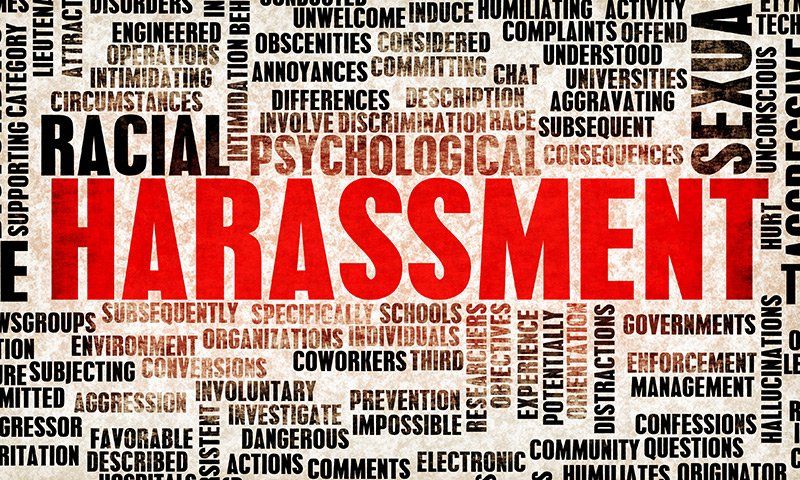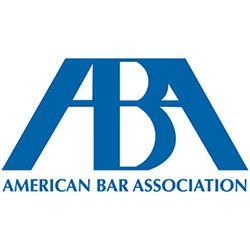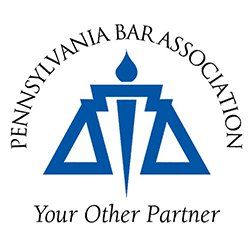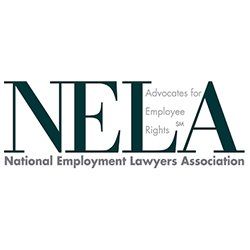CLIENT LOGIN
×Employment Discrimination
Disability Discrimination

Disability discrimination occurs when an employer or other entity covered by the Americans with Disabilities Act, as amended, or the Rehabilitation Act, as amended, treats a qualified individual with a disability who is an employee or applicant unfavorably because she has a disability.
Disability discrimination also occurs when a covered employer or other entity treats an applicant or employee less favorably because she has a history of a disability (such as cancer that is controlled or in remission) or because she is believed to have a physical or mental impairment that is not transitory (lasting or expected to last six months or less) and minor (even if she does not have such an impairment).
The law requires an employer to provide reasonable accommodation to an employee or job applicant with a disability, unless doing so would cause significant difficulty or expense for the employer (“undue hardship”).
The law also protects people from discrimination based on their relationship with a person with a disability (even if they do not themselves have a disability). For example, it is illegal to discriminate against an employee because her husband has a disability.
Note: Federal employees and applicants are covered by the Rehabilitation Act of 1973, instead of the Americans with Disabilities Act. The protections are mostly the same.
Disability Discrimination & Work Situations
The law forbids discrimination when it comes to any aspect of employment, including hiring, firing, pay, job assignments, promotions, layoff, training, fringe benefits, and any other term or condition of employment.
Disability Discrimination & Harassment
It is illegal to harass an applicant or employee because he has a disability, had a disability in the past, or is believed to have a physical or mental impairment that is not transitory (lasting or expected to last six months or less) and minor (even if he does not have such an impairment).
Harassment can include, for example, offensive remarks about a person’s disability. Although the law doesn’t prohibit simple teasing, offhand comments, or isolated incidents that aren’t very serious, harassment is illegal when it is so frequent or severe that it creates a hostile or offensive work environment or when it results in an adverse employment decision (such as the victim being fired or demoted).
The harasser can be the victim’s supervisor, a supervisor in another area, a co-worker, or someone who is not an employee of the employer, such as a client or customer.
Disability Discrimination & Reasonable Accommodation
The law requires an employer to provide reasonable accommodation to an employee or job applicant with a disability, unless doing so would cause significant difficulty or expense for the employer.
A reasonable accommodation is any change in the work environment (or in the way things are usually done) to help a person with a disability apply for a job, perform the duties of a job, or enjoy the benefits and privileges of employment.
Reasonable accommodation might include, for example, making the workplace accessible for wheelchair users or providing a reader or interpreter for someone who is blind or hearing impaired.
While the federal anti-discrimination laws don’t require an employer to accommodate an employee who must care for a disabled family member, the Family and Medical Leave Act (FMLA) may require an employer to take such steps.
Disability Discrimination & Reasonable Accommodation & Undue Hardship
An employer doesn’t have to provide an accommodation if doing so would cause undue hardship to the employer.
Undue hardship means that the accommodation would be too difficult or too expensive to provide, in light of the employer’s size, financial resources, and the needs of the business. An employer may not refuse to provide an accommodation just because it involves some cost. An employer does not have to provide the exact accommodation the employee or job applicant wants. If more than one accommodation works, the employer may choose which one to provide.
Pregnancy Discrimination

Pregnancy discrimination involves treating a woman (an applicant or employee) unfavorably because of pregnancy, childbirth, or a medical condition related to pregnancy or childbirth.
Pregnancy Discrimination & Work Situations
The Pregnancy Discrimination Act (PDA) forbids discrimination based on pregnancy when it comes to any aspect of employment, including hiring, firing, pay, job assignments, promotions, layoff, training, fringe benefits, such as leave and health insurance, and any other term or condition of employment.
Pregnancy Discrimination & Temporary Disability
If a woman is temporarily unable to perform her job due to a medical condition related to pregnancy or childbirth, the employer or other covered entity must treat her in the same way as it treats any other temporarily disabled employee. For example, the employer may have to provide light duty, alternative assignments, disability leave, or unpaid leave to pregnant employees if it does so for other temporarily disabled employees.
Additionally, impairments resulting from pregnancy (for example, gestational diabetes or preeclampsia, a condition characterized by pregnancy-induced hypertension and protein in the urine) may be disabilities under the Americans with Disabilities Act (ADA). An employer may have to provide a reasonable accommodation (such as leave or modifications that enable an employee to perform her job) for a disability related to pregnancy, absent undue hardship (significant difficulty or expense). The ADA Amendments Act of 2008 makes it much easier to show that a medical condition is a covered disability.
Pregnancy Discrimination & Harassment
It is unlawful to harass a woman because of pregnancy, childbirth, or a medical condition related to pregnancy or childbirth. Harassment is illegal when it is so frequent or severe that it creates a hostile or offensive work environment or when it results in an adverse employment decision (such as the victim being fired or demoted). The harasser can be the victim’s supervisor, a supervisor in another area, a co-worker, or someone who is not an employee of the employer, such as a client or customer.
Pregnancy, Maternity & Parental Leave
Under the PDA, an employer that allows temporarily disabled employees to take disability leave or leave without pay, must allow an employee who is temporarily disabled due to pregnancy to do the same.
An employer may not single out pregnancy-related conditions for special procedures to determine an employee’s ability to work. However, if an employer requires its employees to submit a doctor’s statement concerning their ability to work before granting leave or paying sick benefits, the employer may require employees affected by pregnancy-related conditions to submit such statements.
Further, under the Family and Medical Leave Act (FMLA) of 1993, a new parent (including foster and adoptive parents) may be eligible for 12 weeks of leave (unpaid or paid if the employee has earned or accrued it) that may be used for care of the new child. To be eligible, the employee must have worked for the employer for 12 months prior to taking the leave and the employer must have a specified number of employees.
Pregnancy & Workplace Laws
Pregnant employees may have additional rights under the Family and Medical Leave Act (FMLA), which is enforced by the U.S. Department of Labor. Nursing mothers may also have the right to express milk in the workplace under a provision of the Fair Labor Standards Act enforced by the U.S. Department of Labor’s Wage and Hour Division.
Sex & Gender Discrimination

Sex discrimination involves treating someone (an applicant or employee) unfavorably because of that person’s sex.
Discrimination against an individual because of gender identity, including transgender status, or because of sexual orientation is discrimination because of sex in violation of Title VII.
Sex Discrimination & Work Situations
The law forbids discrimination when it comes to any aspect of employment, including hiring, firing, pay, job assignments, promotions, layoff, training, fringe benefits, and any other term or condition of employment.
Sex Discrimination Harassment
It is unlawful to harass a person because of that person’s sex. Harassment can include “sexual harassment” or unwelcome sexual advances, requests for sexual favors, and other verbal or physical harassment of a sexual nature. Harassment does not have to be of a sexual nature, however, and can include offensive remarks about a person’s sex. For example, it is illegal to harass a woman by making offensive comments about women in general.
Both victim and the harasser can be either a woman or a man, and the victim and harasser can be the same sex.
Although the law doesn’t prohibit simple teasing, offhand comments, or isolated incidents that are not very serious, harassment is illegal when it is so frequent or severe that it creates a hostile or offensive work environment or when it results in an adverse employment decision (such as the victim being fired or demoted).
The harasser can be the victim’s supervisor, a supervisor in another area, a co-worker, or someone who is not an employee of the employer, such as a client or customer.
Sex Discrimination & Employment Policies/Practices
An employment policy or practice that applies to everyone, regardless of sex, can be illegal if it has a negative impact on the employment of people of a certain sex and is not job-related or necessary to the operation of the business.
Sexual Orientation & Gender Identity Discrimination

Sexual orientation discrimination in the workplace occurs when an employee is subjected to negative employment action, harassment, or denial of certain benefits because of their sexual orientation, or the sexual orientation of someone they are close to. Sexual orientation discrimination has been part of the workplace in America for decades, and while federal, state and local laws, as well as increased social awareness, have improved the situation dramatically, many people who are not heterosexual still face obstacles at work related to being gay, bisexual, asexual, or pansexual. It is important for employees to have the right information about what constitutes discrimination based on sexual orientation, what constitutes harassment, and how sexual orientation discrimination can tie in with other prohibited forms of discrimination like, sex, disability, gender identity, and marital status.
Sexual orientation discrimination can affect your job status, your working environment, your health benefits, and a host of other issues in the workplace. The law in this area is changing rapidly for the better. If you feel you might have been discriminated against because of your sexual orientation, read below for more information and resources about sexual orientation discrimination.
Race Discrimination

Race discrimination involves treating someone (an applicant or employee) unfavorably because he/she is of a certain race or because of personal characteristics associated with race (such as hair texture, skin color, or certain facial features). Color discrimination involves treating someone unfavorably because of skin color complexion.
Race/color discrimination also can involve treating someone unfavorably because the person is married to (or associated with) a person of a certain race or color.
Discrimination can occur when the victim and the person who inflicted the discrimination are the same race or color.
Race/Color Discrimination & Work Situations
The law forbids discrimination when it comes to any aspect of employment, including hiring, firing, pay, job assignments, promotions, layoff, training, fringe benefits, and any other term or condition of employment.
Race/Color Discrimination & Harassment
It is unlawful to harass a person because of that person’s race or color.
Harassment can include, for example, racial slurs, offensive or derogatory remarks about a person’s race or color, or the display of racially-offensive symbols. Although the law doesn’t prohibit simple teasing, offhand comments, or isolated incidents that are not very serious, harassment is illegal when it is so frequent or severe that it creates a hostile or offensive work environment or when it results in an adverse employment decision (such as the victim being fired or demoted).
The harasser can be the victim’s supervisor, a supervisor in another area, a co-worker, or someone who is not an employee of the employer, such as a client or customer.
Race/Color Discrimination & Employment Policies/Practices
An employment policy or practice that applies to everyone, regardless of race or color, can be illegal if it has a negative impact on the employment of people of a particular race or color and is not job-related and necessary to the operation of the business. For example, a “no-beard” employment policy that applies to all workers without regard to race may still be unlawful if it is not job-related and has a negative impact on the employment of African-American men (who have a predisposition to a skin condition that causes severe shaving bumps).
National Origin Discrimination
National origin discrimination involves treating people (applicants or employees) unfavorably because they are from a particular country or part of the world, because of ethnicity or accent, or because they appear to be of a certain ethnic background (even if they are not).
National origin discrimination also can involve treating people unfavorably because they are married to (or associated with) a person of a certain national origin.
Discrimination can occur when the victim and the person who inflicted the discrimination are the same national origin.
National Origin Discrimination & Work Situations
The law forbids discrimination when it comes to any aspect of employment, including hiring, firing, pay, job assignments, promotions, layoff, training, fringe benefits, and any other term or condition of employment.
National Origin & Harassment
It is unlawful to harass a person because of his or her national origin. Harassment can include, for example, offensive or derogatory remarks about a person’s national origin, accent or ethnicity. Although the law doesn’t prohibit simple teasing, offhand comments, or isolated incidents that are not very serious, harassment is illegal when it is so frequent or severe that it creates a hostile or offensive work environment or when it results in an adverse employment decision (such as the victim being fired or demoted).
The harasser can be the victim’s supervisor, a supervisor in another area, a co-worker, or someone who is not an employee of the employer, such as a client or customer.
National Origin & Employment Policies/Practices
The law makes it illegal for an employer or other covered entity to use an employment policy or practice that applies to everyone, regardless of national origin, if it has a negative impact on people of a certain national origin and is not job-related or necessary to the operation of the business.
An employer can only require an employee to speak fluent English if fluency in English is necessary to perform the job effectively. An “English-only rule”, which requires employees to speak only English on the job, is only allowed if it is needed to ensure the safe or efficient operation of the employer’s business and is put in place for nondiscriminatory reasons.
An employer may not base an employment decision on an employee’s foreign accent, unless the accent seriously interferes with the employee’s job performance.
Citizenship Discrimination & Workplace Laws
The Immigration Reform and Control Act of 1986 (IRCA) makes it illegal for an employer to discriminate with respect to hiring, firing, or recruitment or referral for a fee, based upon an individual’s citizenship or immigration status. The law prohibits employers from hiring only U.S. citizens or lawful permanent residents unless required to do so by law, regulation or government contract. Employers may not refuse to accept lawful documentation that establishes the employment eligibility of an employee, or demand additional documentation beyond what is legally required, when verifying employment eligibility (i.e., completing the Department of Homeland Security (DHS) Form I-9), based on the employee’s national origin or citizenship status. It is the employee’s choice which of the acceptable Form I-9 documents to show to verify employment eligibility.
IRCA also prohibits retaliation against individuals for asserting their rights under the Act, or for filing a charge or assisting in an investigation or proceeding under IRCA.
IRCA’s nondiscrimination requirements are enforced by the Department of Justice’s Office of Special Counsel for Immigration-Related Unfair Employment Practices (OSC), Civil Rights Division.
Religious Discrimination

Religious discrimination involves treating a person (an applicant or employee) unfavorably because of his or her religious beliefs. The law protects not only people who belong to traditional, organized religions, such as Buddhism, Christianity, Hinduism, Islam, and Judaism, but also others who have sincerely held religious, ethical or moral beliefs.
Religious discrimination can also involve treating someone differently because that person is married to (or associated with) an individual of a particular religion.
Religious Discrimination & Work Situations
The law forbids discrimination when it comes to any aspect of employment, including hiring, firing, pay, job assignments, promotions, layoff, training, fringe benefits, and any other term or condition of employment.
Religious Discrimination & Harassment
It is illegal to harass a person because of his or her religion.
Harassment can include, for example, offensive remarks about a person’s religious beliefs or practices. Although the law doesn’t prohibit simple teasing, offhand comments, or isolated incidents that aren’t very serious, harassment is illegal when it is so frequent or severe that it creates a hostile or offensive work environment or when it results in an adverse employment decision (such as the victim being fired or demoted).
The harasser can be the victim’s supervisor, a supervisor in another area, a co-worker, or someone who is not an employee of the employer, such as a client or customer.
Religious Discrimination & Segregation
Title VII also prohibits workplace or job segregation based on religion (including religious garb and grooming practices), such as assigning an employee to a non-customer contact position because of actual or feared customer preference.
Religious Discrimination & Reasonable Accommodation
The law requires an employer or other covered entity to reasonably accommodate an employee’s religious beliefs or practices, unless doing so would cause more than a minimal burden on the operations of the employer’s business. This means an employer may be required to make reasonable adjustments to the work environment that will allow an employee to practice his or her religion.
Examples of some common religious accommodations include flexible scheduling, voluntary shift substitutions or swaps, job reassignments, and modifications to workplace policies or practices.
Religious Accommodation/Dress & Grooming Policies
Unless it would be an undue hardship on the employer’s operation of its business, an employer must reasonably accommodate an employee’s religious beliefs or practices. This applies not only to schedule changes or leave for religious observances, but also to such things as dress or grooming practices that an employee has for religious reasons. These might include, for example, wearing particular head coverings or other religious dress (such as a Jewish yarmulke or a Muslim headscarf), or wearing certain hairstyles or facial hair (such as Rastafarian dreadlocks or Sikh uncut hair and beard). It also includes an employee’s observance of a religious prohibition against wearing certain garments (such as pants or miniskirts).
When an employee or applicant needs a dress or grooming accommodation for religious reasons, he should notify the employer that he needs such an accommodation for religious reasons. If the employer reasonably needs more information, the employer and the employee should engage in an interactive process to discuss the request. If it would not pose an undue hardship, the employer must grant the accommodation.
Religious Discrimination & Reasonable Accommodation & Undue Hardship
An employer does not have to accommodate an employee’s religious beliefs or practices if doing so would cause undue hardship to the employer. An accommodation may cause undue hardship if it is costly, compromises workplace safety, decreases workplace efficiency, infringes on the rights of other employees, or requires other employees to do more than their share of potentially hazardous or burdensome work.
Religious Discrimination & Employment Policies/Practices
An employee cannot be forced to participate (or not participate) in a religious activity as a condition of employment.
Age Discrimination

The EEO laws prohibit punishing job applicants or employees for asserting their rights to be free from employment discrimination including harassment. Asserting these EEO rights is called “protected activity,” and it can take many forms. For example, it is unlawful to retaliate against applicants or employees for:
- filing or being a witness in an EEO charge, complaint, investigation, or lawsuit
- communicating with a supervisor or manager about employment discrimination, including harassment
- answering questions during an employer investigation of alleged harassment
- refusing to follow orders that would result in discrimination
- resisting sexual advances, or intervening to protect others
- requesting accommodation of a disability or for a religious practice
- asking managers or co-workers about salary information to uncover potentially discriminatory wages.
Participating in a complaint process is protected from retaliation under all circumstances. Other acts to oppose discrimination are protected as long as the employee was acting on a reasonable belief that something in the workplace may violate EEO laws, even if he or she did not use legal terminology to describe it.
Engaging in EEO activity, however, does not shield an employee from all discipline or discharge. Employers are free to discipline or terminate workers if motivated by non-retaliatory and non-discriminatory reasons that would otherwise result in such consequences. However, an employer is not allowed to do anything in response to EEO activity that would discourage someone from resisting or complaining about future discrimination.
For example, depending on the facts, it could be retaliation if an employer acts because of the employee’s EEO activity to:
- reprimand the employee or give a performance evaluation that is lower than it should be;
- transfer the employee to a less desirable position;
- engage in verbal or physical abuse;
- threaten to make, or actually make reports to authorities (such as reporting immigration status or contacting the police);
- increase scrutiny;
- spread false rumors, treat a family member negatively (for example, cancel a contract with the person’s spouse); or
- make the person’s work more difficult (for example, punishing an employee for an EEO complaint by purposefully changing his work schedule to conflict with family responsibilities).
Pay Disparity
The right of employees to be free from discrimination in their compensation is protected under several federal laws, including the following enforced by the U.S. Equal Employment Opportunity Commission: the Equal Pay Act of 1963, Title VII of the Civil Rights Act of 1964, the Age Discrimination in Employment Act of 1967, and Title I of the Americans with Disabilities Act of 1990.
The law against compensation discrimination includes all payments made to or on behalf employees as remuneration for employment. All forms of compensation are covered, including salary, overtime pay, bonuses, stock options, profit sharing and bonus plans, life insurance, vacation and holiday pay, cleaning or gasoline allowances, hotel accommodations, reimbursement for travel expenses, and benefits.
Office Address
Phone
Fax
© 2022 Abara Law Firm, PLLC. All Rights Reserved.








